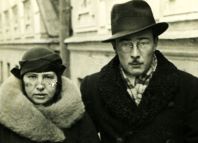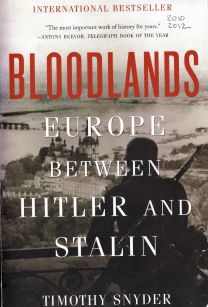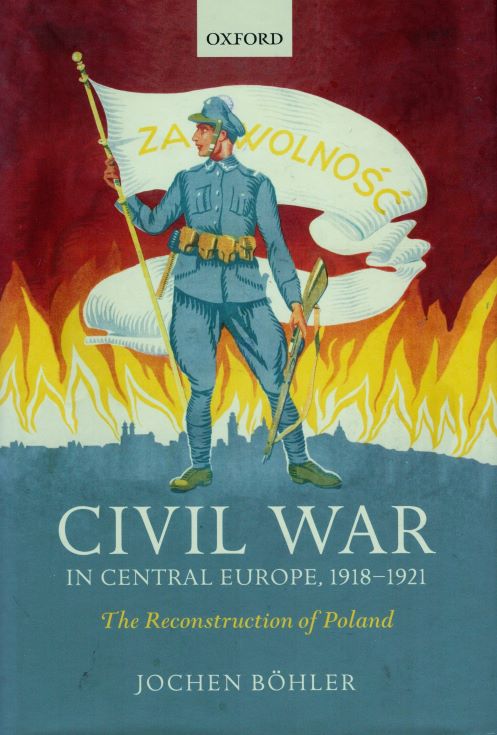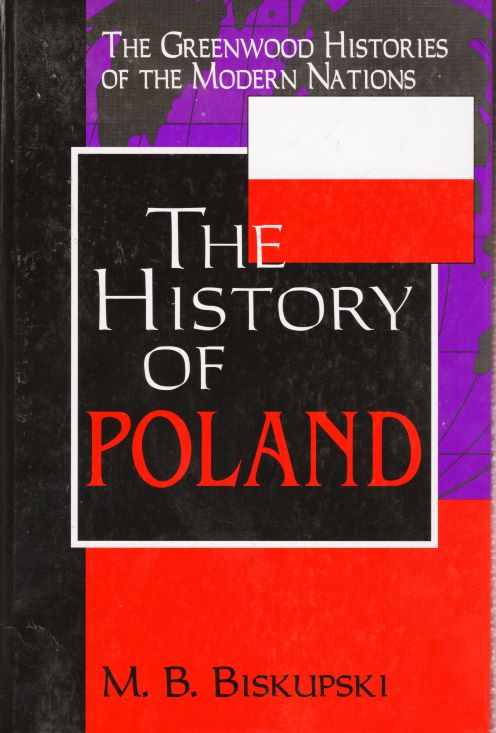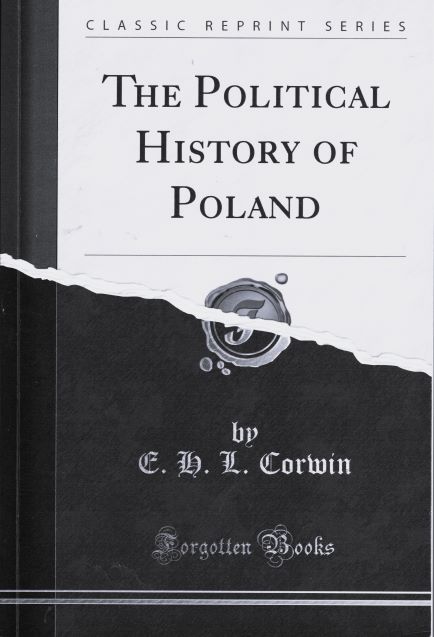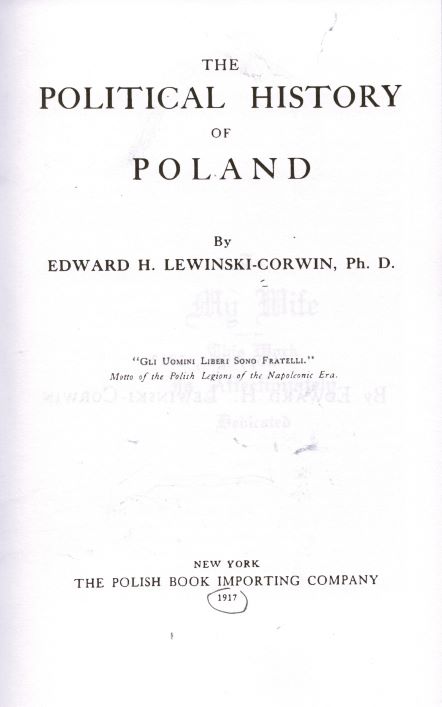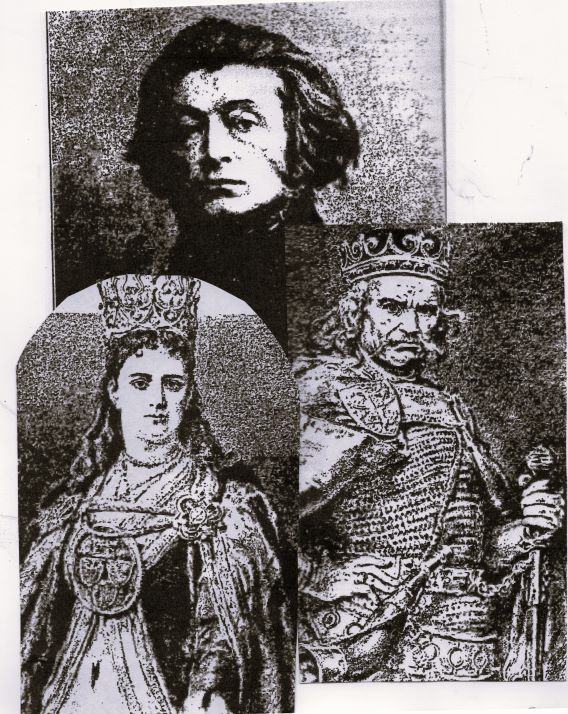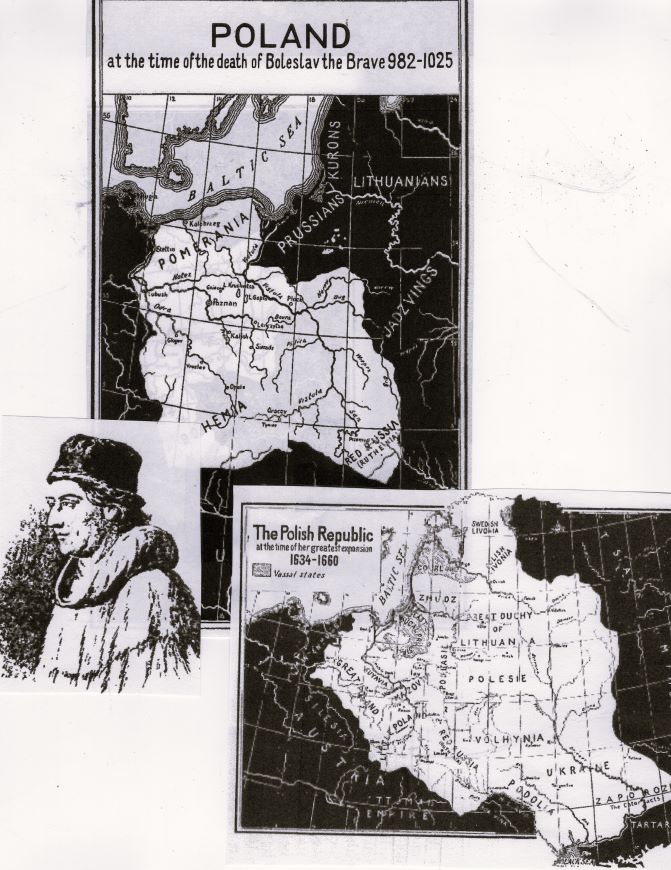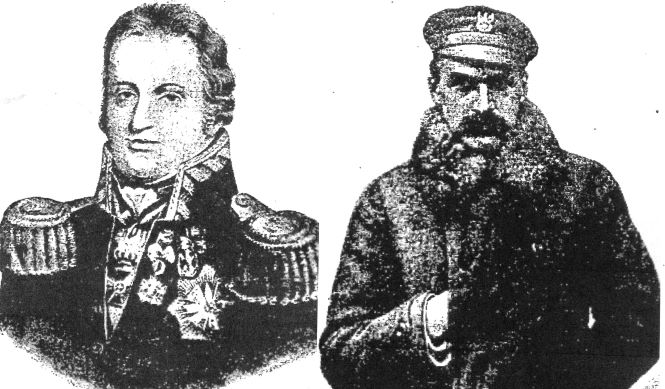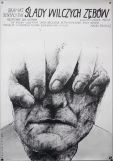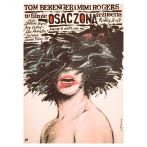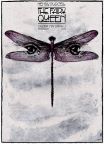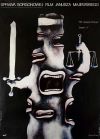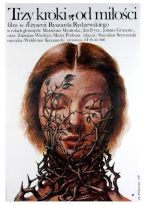History /
Recommended Poland's history books [257]
BLOODLANDS EUROPE BETWEEN HITLER AND STALIN, Timothy Snyder, 2010.
"Stalin's suggestions were transformed into orders, the orders into quotas, the quotas into corpses."
(Pg. 309)
The "Bloodlands" would constitute the geographical area from the Oder - Neiss Rivers west of Poznan all the way to Smolensk; from Leningrad to Kursk to Kharkiv to the Crimea. It includes all the famous cities: Minsk, Warsaw, Vilnius, Kiev, Lviv, Lublin, Riga, Lodz, Gdansk, Cracow, Novgorod, Balystock and on and on.
The victims were not combatants. They were unarmed civilians or prisoners of a regime or prisoners of war. The total murdered comes to over FOURTEEN MILLION. The major theme of the book is the intentional atrocities that occurred through the interaction of totalitarian regimes. Events that Snyder covers are:
The Holodomor (1932-33) - the man-made famine caused by Stalin's policies in the Ukraine.
The Great Terror (1937-38) - its purges, executions and deportations.
The Nazi invasion of the USSR.
Hitler's campaign to exterminate Slavs (especially Poles) and other "racially inferior" groups.
The Holocaust and how it developed over time.
Finally the post-WW II ethnic cleansing campaigns are dealt with.
Snyder emphasizes that these killings were not COLLATERAL DAMAGE due to warfare. They were deliberate attempts by the Soviets and Nazis to reshape societies. Snyder focuses on mostly civilian suffering, especially how ordinary people were the targets.
Snyder criticizes Western European-centric histories that just highlight the Holocaust and neglect other crimes against Slaves (Poles, Ukrainians, Belarusians, etc.) and also Stalin's role in contributing to the death toll. We view the Holocaust in isolation but Snyder includes it in the very insane machinations of Eastern European history. From this view I learned quite a lot.
Today many people don't realize the WW II started with Stalin as a Nazi ally attacking Poland. Stalin, between 1939 and 1941, massacred thousands of Poles. By the time WW II started Stalin was an expert in mass killings. Hitler and his gang had to learn quickly. Learn they did and they bypassed Stain's totals.
Snyder covers how the Holocaust developed into the Final Solution and how it fit into the Bloodlands. The Nazis believed the Soviet Union was a Jewish state. In the end the Soviets downplayed the Holocaust. To emphasize the Holocaust was to downplay the suffering of ALL SOVIETS in the motherland. That was Soviet thinking, especially after WW II.
Stalin created the gulags in 1931 and by the post-war they grew to 476 camps holding 18 million people ( more than every man, woman, child in New York City, TWICE OVER).
The starvation in the Ukraine (1932-33) that Stalin caused killed not only Ukrainians but Poles, Russians, Jews, Germans and whoever happened to be living in that area at that time. No one in the outside world knew of this famine. The NY TIMES was especially duped. Stalin was brilliant like a magician to hide the death of millions.
Stalin's Great Terror (1937-38) was the ethnic killing of nationalities in the Soviet Union. The largest group of butchered ethnic peoples were Polish, especially in Ukraine and Belarus. Stalin believed the Poles were fascists attempting to undermine the USSR, The Great Terror also went unnoticed in the Western world except for some show trials and army purges.
Most Polish Jews were exterminated at Belzec, Sobibor and Treblinka by carbon Monoxide gas (1942). These were not "concentration camps" but "death factories". You were shipped there to be killed.. Most Jews east of the Molotov-Ribbentrop line were killed by shooting or starvation and not by gassing. You can say overall, in the Bloodlands, from 1932 to 1945, most of the killing was by starvation then shooting then gassing. The shooting was quite personal. One on one during Stalin's purges or the Nazis execiuting groups over open pits.
Some interesting points. The highest number on non-combatant deaths in one area would be Minsk, Belarus. More people died in Ukraine than anywhere in Eastern Europe or in Europe or in Asia (including China) during this period. It included not just Ukrainians but anybody else who happened to live in or be there: Poles, Belarussians, Jews, German Soviets, etc., etc.
Other points of interest. "Nearly as many NON-JEWISH Poles were murdered during the war as European Jews were gassed at Auschwitz. For that matter, more non-Jewish Poles died at Auschwitz than did Jews if any European country, with only two exceptions: Hungary and Poland." (Pg. 406)
The Wehrmacht was told that Poland wasn't a real country, that Polish soldiers were not real soldiers, that the German dead were "murdered" not killed in action. Thus it was logically correct to kill Polish POWs.
When the Nazis captured Soviet POWs they put them in camps without shelter or food and left them to starve. Cannibalism started up. The Nazis offered the Soviet POWs a form of salvation. Join the Nazis. Many did, especially Ukrainians. They were sent to a training camp called TRAWNICKI where they became police and concentration camp guards and were called "Trawnicki men". Thousands of Belarussians, Russians and Germans living in the USSR were recruited into occupation police forces.
Everyone lumps concentration camps together but there were death camps and there were work camps. Auschwitz was famous because it was large and it was both types. In 1944 Auschwitz became the pre-eminent site for the Final Solution. By then most of the Polish Jews were dead; exterminated in camps that had been built and already dismantled (see above).
Auschwitz is famous because it began taking in Jews from areas OUTSIDE the Bloodlands, e.g. Hungary, Franc, Italy, etc.
"Auschwitz was indeed a major site of the Holocaust: about one in six murdered Jews perished there...Auschwitz was also not the main place where the two largest Jewish communities in Europe, the Polish and the Soviet, were exterminated. Most Soviet and Polish Jews under German occupation had already been murdered by the time Auschwitz became the major death factory. By the time the gas chamber and crematoria complexes at Birkenau came on line in spring 1943, more than three quarters of the Jews who would be killed in the Holocaust were already dead. For that matter, the tremendous majority of all of the people who would be deliberately killed by the Soviet and Nazi regimes, well over ninety percent, had already been killed by the time these gas chambers at Birkinau began their deadly work. AUSCHWITZ IS THE CODA TO THE DEATH FUGUE."
(Pg. 383)
Finally the Warsaw Uprising of 1944 unveiled Stalin's evilness to the eyes of the Allies and this time period could be said to be the first stirrings of the "COLD WAR" that was to come. Then came Yalta (Feb., 1945) and Potsdam (July, 1945) and the Allies knew Stalin's real make-up. By then Stalin didn't care. He was the "master manipulator". He destroyed Hitler and the Nazis. He destroyed all the enemies (real or imagined) of the USSR. He re-shaped all of Eastern Europe and its many societies. Churchill and FDR kow-towed to his demands.
I do believe in heaven and I do believe in hell. After reading this book there has got to be a hell as a reward for the perpetrators who created the Bloodlands.


